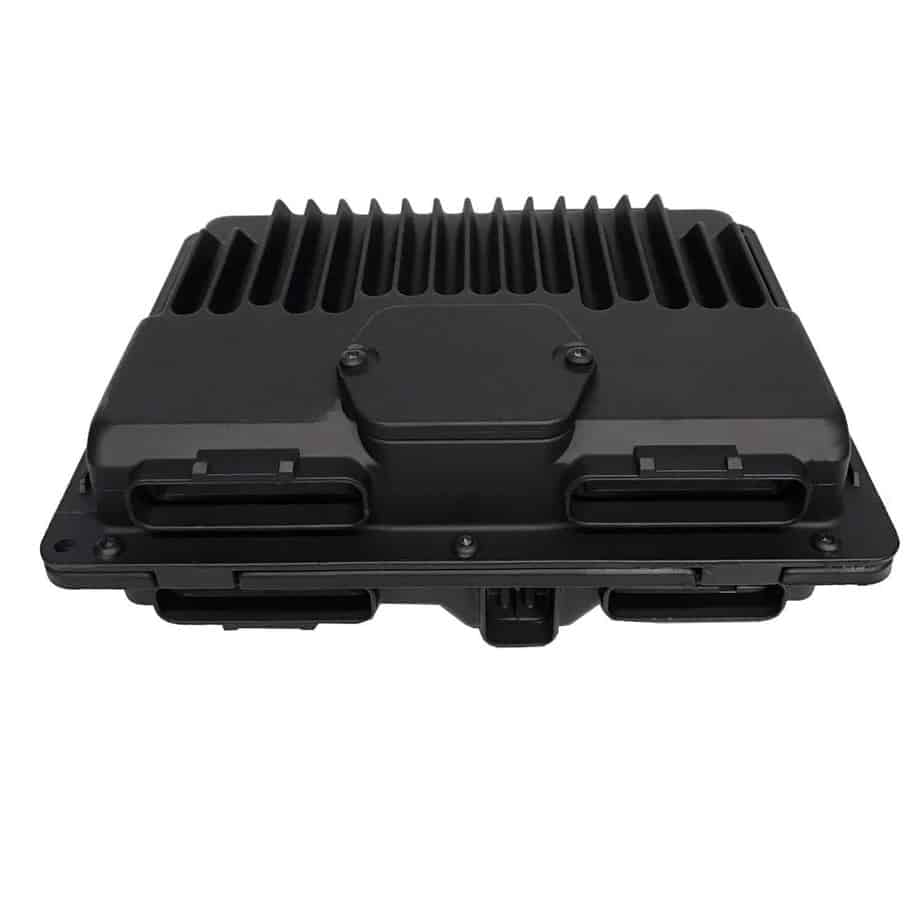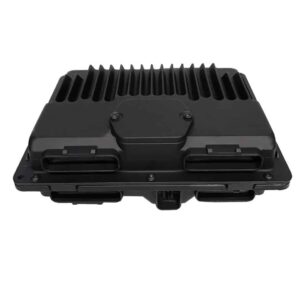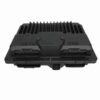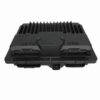If you’re wrestling with baffling engine problems on your 1998-1999 GMC 1500, you know the frustration. Maybe it’s a persistent Check Engine Light, a rough idle that makes you think the truck will stall at any moment, or a sudden loss of power that makes driving unsafe. As a technician with over two decades of experience, I’ve seen these exact issues countless times, and very often, the culprit is a failing Powertrain Control Module (PCM).
The PCM is the brain of your truck’s engine and transmission. It controls everything from fuel mixture and ignition timing to shift points and emissions. When it starts to fail, it can cause a cascade of confusing symptoms that are difficult to diagnose. You don’t have to keep throwing parts at the problem. This is a direct-fit, reliable solution to restore your truck’s performance and peace of mind.
Case Study: A Tricky Diagnosis
I remember a ’99 Chevy Suburban that came into the shop with an intermittent no-start condition and a complaint of poor fuel economy. The owner had already replaced the fuel pump and spark plugs. We scanned it and found no hard codes, just a history of communication loss with various sensors. After checking the wiring harnesses and grounds—a critical step on these GMT400 platforms—we focused on the PCM. By monitoring live data, we saw erratic readings from the crank sensor right before it would stall, even though the sensor itself was new. We swapped in a known-good PCM, and the truck ran perfectly. The original module’s internal processor was failing under heat, causing it to misinterpret sensor data. This is a classic failure mode I’ve diagnosed on dozens of these GM trucks and SUVs.
Common Signs of a Failing PCM
- ✔ Your vehicle will not start or is very difficult to start.
- ✔ Persistent Check Engine Light (CEL) that won’t go away.
- ✔ Diagnostic Trouble Codes (DTCs) related to internal module failure, like P0601, P0604, or P0606.
- ✔ Communication errors (U-codes) with the scan tool.
- ✔ Noticeable drop in fuel efficiency for no apparent reason.
- ✔ Rough or unpredictable automatic transmission shifting.
- ✔ Engine stalling, sputtering, or running rough.
A Straightforward Guide to Installation
One of the best features of this module is its simple installation. Because we program it to your vehicle’s VIN before shipping, it’s ready to go right out of the box. No trip to the dealer is needed.
- Safety First: Always disconnect the negative terminal from your truck’s battery and wait 10-15 minutes for any residual power to discharge.
- Locate the PCM: On most 1998-1999 GMC 1500 Pickups, the PCM is located in the engine compartment on the driver’s side, near the fender or firewall. It’s a silver metal box with several large electrical connectors.
- Disconnect Connectors: Carefully unplug the wiring harness connectors from the old PCM. There are typically release tabs you’ll need to press or lift. Avoid pulling on the wires themselves.
- Remove the Old Module: Unbolt the PCM from its mounting bracket. Keep the hardware, as you may need to reuse it.
- Install the New Module: Bolt the new PCM into the mounting bracket and securely reconnect the wiring harnesses. You should hear or feel a click as they lock into place.
- Reconnect Battery: Reattach the negative battery terminal. The installation is complete. It’s recommended to perform a security relearn procedure if applicable, which can often be found in your owner’s manual or online forums.
Will This Fit My Vehicle?
We guarantee this module is a direct fit for the following vehicles when matching the part number ID. This part is a direct replacement for service numbers 16250279, 09366810, and 09355699. Please verify the ID on your current module to ensure compatibility.
- Cadillac Escalade: 1999 (ID 16250279)
- Chevrolet Astro Van: 1998-1999 (ID 16250279)
- Chevrolet Blazer S10: 1998 (w/o build date opt ZN4; ID 16250279, 16258815)
- Chevrolet Express/GMC Savana Vans (1500/2500/3500): 1998 (Gasoline, ID 16250279)
- Chevrolet & GMC Pickups (1500/2500/3500): 1998-1999 (Gasoline, ID 16250279)
- Chevrolet S10/GMC Sonoma: 1998 (4.3L, w/o build date opt ZN4; ID 16250279, 16258815)
- Chevrolet Suburban/GMC Yukon: 1998-1999 (Gasoline, ID 16250279)
- Chevrolet Tahoe: 1998-1999 (Gasoline, ID 16250279)
- GMC Envoy: 1998 (w/o build date opt ZN4; ID 16250279, 16258815)
- GMC Jimmy S15: 1998 (w/o build date opt ZN4; ID 16250279, 16258815)
- GMC Safari Van: 1998-1999 (ID 16250279)
- Isuzu Hombre: 1998 (4.3L, w/o extended build date opt ZN4; ID 16258815)
- Oldsmobile Bravada: 1998 (4.3L, w/o build date opt ZN4; ID 16250279, 16258815)
Frequently Asked Questions
Frequently Asked Questions
Why do you need my VIN?
Your Vehicle Identification Number (VIN) allows us to program the PCM with the exact factory software and calibrations for your truck’s specific engine, transmission, and options. This ensures it works perfectly right out of the box, with no additional programming required.
Is this part difficult to install for a DIYer?
Not at all. For most models, it’s a simple plug-and-play process. You’ll just need basic hand tools to unbolt the old module and bolt in the new one. Since we handle the programming, you skip the most complicated part of the job.
Will this fix my check engine light?
If the check engine light is caused by an internal failure of the PCM (like code P0601), then yes, this will resolve the issue. However, you should always diagnose the codes first to ensure the problem isn’t a faulty sensor or wiring issue.
What happens if I don’t replace a failing PCM?
Continuing to drive with a faulty PCM can lead to more severe problems, including poor fuel economy, failed emissions tests, damage to other components like the catalytic converter, and eventually, a no-start condition that could leave you stranded.
Is this a new or used part?
This is a high-quality, inspected, and tested recycled OEM part. Each unit undergoes a rigorous verification process and is then programmed with the latest GM software for your vehicle, ensuring OEM-level performance and reliability.



